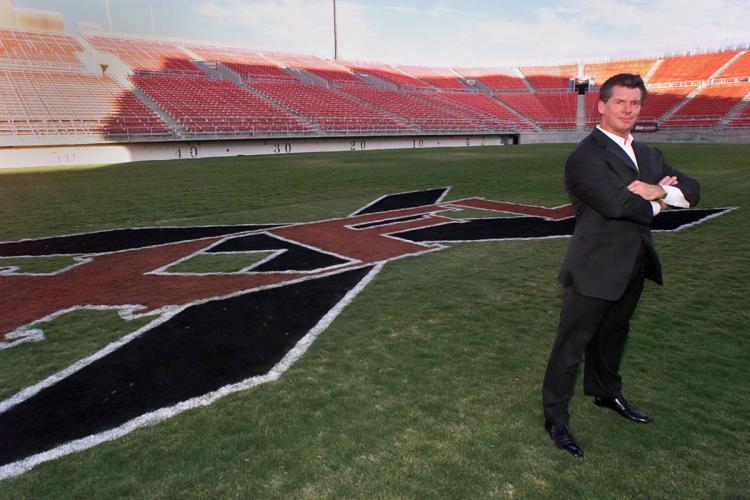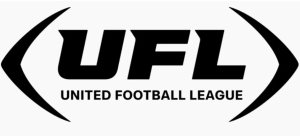The debut of the United Football League this weekend signals the true end of the XFL. And – as hard as it is to type, coming from a longtime, ardent fan of the league – there should be no more attempts to revive XFL.
Oh sure, the XFL still exists as a conference within the UFL. But for how long? Eventually the UFL will either die out, taking the conference names to the grave with it; or it will expand and outgrow the need for XFL and USFL conferences.
There was something about those letters, and what they represented, that will be missed in the spring football landscape. To me, the XFL was about innovation, it was about opportunity, and it was in some ways about being an underdog: From the players that took the field, to the league itself, twice left for dead. It was an idea you wanted to root for to succeed.
Of course, there’s a great deal of nostalgia associated with it too. I was a sophomore in high school when the XFL debuted, so it was a part of my formative years growing up.
This is not to say the XFL was perfect. At times, far from it. Vince McMahon’s first iteration of the league in 2001 appealed to me as both a teenager and a pro wrestling fan. And I appreciated the attempts to differentiate the league from what had become a staid NFL.
That said, I acknowledge it was a commercial failure. There were small successes, such as the technological advances, like the Skycam, used by pro and college football today. There were players who were able to prolong their careers, even for just one year, if not earn NFL paychecks based on their performance that season.
XFL 2020 and 2023 had their own issues. XFL 2020 seemed to be spending money at an unsustainable rate, even with the amount of cash Vince McMahon had pledged to invest. There were also the issues between Oliver Luck and McMahon that risked tarnishing even the positive memories of that league. .
In some ways, XFL 2023 had the opposite problem: They veered too far into money-saving mode at the expense of local and national engagement, relying too heavily on Dany Garcia and Dwayne Johnson as its stars. Competition from the USFL splintered spring football allegiances.
But to me through each phase of the XFL’s existence, the positives far outweighed the negatives. It was like a family member you love despite their faults.
The XFL desired to be ahead of the curve in both off-field technology and on-field game play. Again, not all of them proved to be good ideas, but offering something different than the NFL was key to attracting an audience to sample the product.
There were common threads woven through all three versions, including players mic’d up and the ability to go into the locker rooms before and after the games, as well as at halftime. These were once sacred areas previously off-limits to fans. That transparency was to set the league apart from others.
The UFL in many ways carries on the tradition of the XFL. It’s spring football, it’s innovation, it’s opportunity. Those three letters, “XFL,” meant something, however. Every time you heard an NFL announcer refer to a player’s XFL experience, it was validation, in some ways, for all the time I spent researching, watching, and writing about each iteration of the league. It was a “yeah, see?!” to those columnists and sportswriters who couldn’t wait to deride the league back in 2001.
There was the idea that something so ridiculed two decades ago could rise up and be bigger, better, and more successful in the 2020s than its predecessor ever could. But that never happened.
And truly, it never should again. The XFL brand has been so battered due to both the decision-making of its ownership and issues outside of its control, that any resurrection of it would be met with ridicule beyond the worth the letters carry at this point.
Many believe the UFL is the last, best chance for spring football to succeed. If it dies out, it could be a while before another league of its size and scope is tried again. If that happens, better to create a new league from scratch than drag the XFL letters back from purgatory.
There is still the ability to look back with reverence at what the league accomplished, even though none of the three versions ended satisfactorily for this fan. Bringing it back a fourth time would lessen the memory and increase the odds that people will fail to take the brand seriously given its historical lack of success.
I never thought I’d get to the point where I’d argue against bringing the XFL back again. In fact, one of my college friends, when he wanted to rile me up and tease me, would often belt out in his gravelly McMahon imitation, “XFL…SEASON TWO!!”
Yet, here I am. The XFL is dead. The UFL has arrived, and it’s time to embrace what we have rather than conjure up what could’ve – or should’ve – been.













